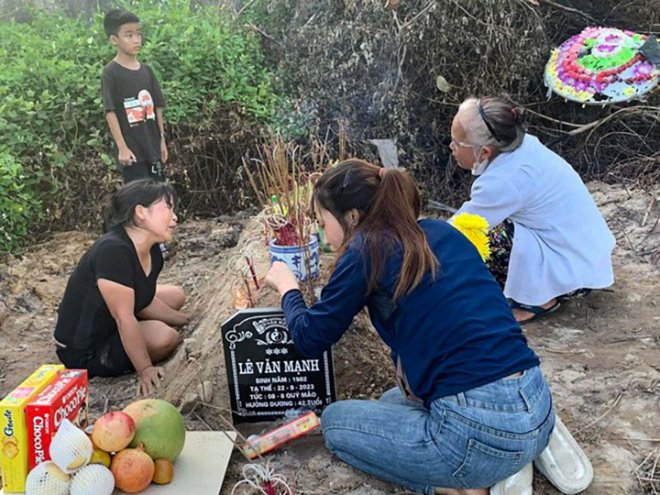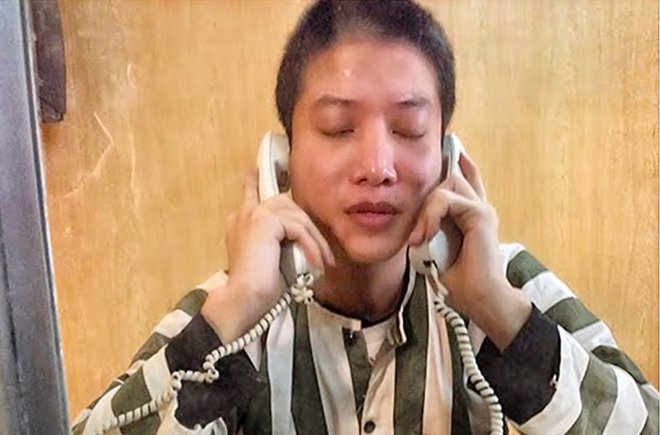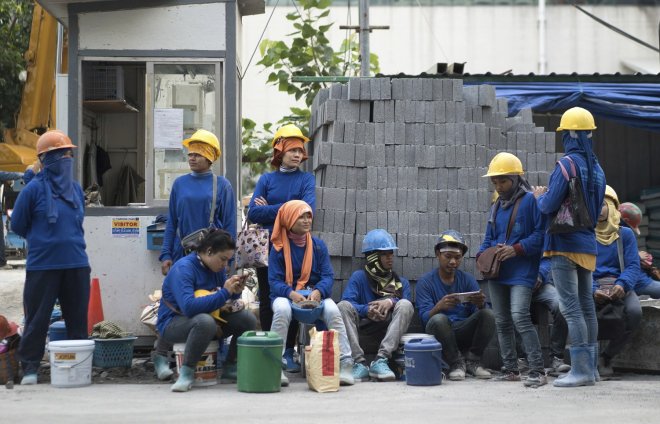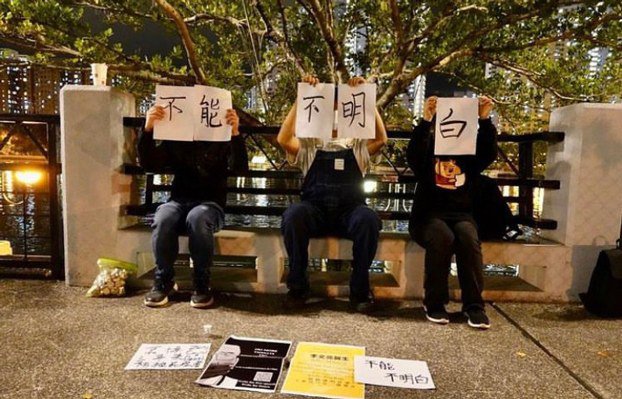China's Xi wants more political 'struggle' in ruling party ranks
In a move that some fear could lead to a return to the political "struggle sessions" of the Mao era, ruling Chinese Communist Party leader Xi Jinping has called on leaders at all levels of the party to "be brave enough to struggle" as part of efforts to boost ideological unity.
In a "special instruction on propaganda, ideological and cultural work" published by state news agency Xinhua on Sunday, Xi said "propaganda, ideological and cultural work are connected to the future and destiny of the party and national stability" that will unite people "of all ethnic groups."
Outside the government system, the authorities control public dissent through pervasive surveillance, a "grid" system of law enforcement at the neighborhood level and a targeted "stability maintenance" system aimed at controlling critics of the government before they take action.
Xi"s directive calls for party committees at every level of government and in major companies to take this "stability maintenance" work into the government system, nipping dangerous ideas in the bud and ensuring everyone in a position of power is singing from the same hymn sheet, in an ongoing and outward show of loyalty to him.
"Propaganda and cultural departments at all levels must strengthen their political responsibilities ... who are brave enough to struggle and who are good at it," Xinhua paraphrased Xi as saying at a two-day National Ideological and Cultural Work Conference in Beijing from Oct. 7-8.
The fact that Xi"s comments have been given the status of an "important instruction" also published in the party newspaper, the People’s Daily, means that party committees must give them priority.
"They must be studied and understood in depth and resolutely implemented," the report said, citing a communique from the conference.
‘Red gene’
In March, the party’s Central Commission for Discipline Inspection, charged with ensuring party members toe the line, set up a working group to “build political loyalty [and] eliminate black sheep.”
The concept of "being brave enough to struggle and being good at it" isn"t new to Xi Jinping Thought, where it is listed as a major component of the "red gene," another Xi buzzword.
But this is the first time it has been repackaged as an imperative for party committees since it first made an appearance in September 2021.
![]() People pass portraits of Chinese President Xi Jinping and late Chinese chairman Mao Zedong In Shanghai, China, Aug. 31, 2022. Credit: Aly Song/Reuters
People pass portraits of Chinese President Xi Jinping and late Chinese chairman Mao Zedong In Shanghai, China, Aug. 31, 2022. Credit: Aly Song/Reuters![]()
Before getting a makeover from Xi, the term "struggle" was closely associated with the public denunciations and kangaroo courts of the Cultural Revolution that raged from 1966-76 under late supreme leader Mao Zedong.
Xi has drawn heavily on communist icons and legends in recent years, kicking off his third term in office with visits to several of the Communist Party"s "holy sites," and sparking a slew of copycat visits from lower-ranking officials.
The insistence on "struggle" as a form of political practice comes amid growing concerns over a Mao Zedong-style personality cult around Xi, as institutions and political figures compete to show the utmost loyalty and study up on his personal brand of political ideology.
When he came to power in 2012, Xi relied on his trademark "tigers and flies" anti-corruption campaigns to bring down his political rivals and generate "struggle" within party ranks.
‘Irregular income’
‘According to estimates from the U.S. National Bureau of Economic Research, corruption is so widespread throughout party and government ranks as to provide rich pickings for anyone looking for a good reason to bring down a powerful official.
Recent research published by the bureau suggests that at least 65% of Chinese officials at bureau level and above are involved in some form of corrupt dealings.
Researchers looked at China"s housing provident fund records between 2006 and 2013 and compared the official income reported by government employees with the income needed to buy the property they owned, and came to three major conclusions.
The results showed that the "irregular income" of Chinese Communist Party officials accounted for an average of 83% of their overall income, although official salaries are generally fairly competitive, and officials aren"t underpaid.
This proportion rose with an official"s rank, with department directors sometimes raking in more than four times their official salary from other sources.
However Xi"s anti-corruption purges appear to have had some impact, the report said, citing falling unofficial income since he took power.
According to state media reports, Xi"s anti-corruption campaign has netted some 4.7 million low-ranking “flies” and thousands of high-ranking “tigers" since 2012.
Translated by Luisetta Mudie.
In a "special instruction on propaganda, ideological and cultural work" published by state news agency Xinhua on Sunday, Xi said "propaganda, ideological and cultural work are connected to the future and destiny of the party and national stability" that will unite people "of all ethnic groups."
Outside the government system, the authorities control public dissent through pervasive surveillance, a "grid" system of law enforcement at the neighborhood level and a targeted "stability maintenance" system aimed at controlling critics of the government before they take action.
Xi"s directive calls for party committees at every level of government and in major companies to take this "stability maintenance" work into the government system, nipping dangerous ideas in the bud and ensuring everyone in a position of power is singing from the same hymn sheet, in an ongoing and outward show of loyalty to him.
"Propaganda and cultural departments at all levels must strengthen their political responsibilities ... who are brave enough to struggle and who are good at it," Xinhua paraphrased Xi as saying at a two-day National Ideological and Cultural Work Conference in Beijing from Oct. 7-8.
The fact that Xi"s comments have been given the status of an "important instruction" also published in the party newspaper, the People’s Daily, means that party committees must give them priority.
"They must be studied and understood in depth and resolutely implemented," the report said, citing a communique from the conference.
‘Red gene’
In March, the party’s Central Commission for Discipline Inspection, charged with ensuring party members toe the line, set up a working group to “build political loyalty [and] eliminate black sheep.”
The concept of "being brave enough to struggle and being good at it" isn"t new to Xi Jinping Thought, where it is listed as a major component of the "red gene," another Xi buzzword.
But this is the first time it has been repackaged as an imperative for party committees since it first made an appearance in September 2021.
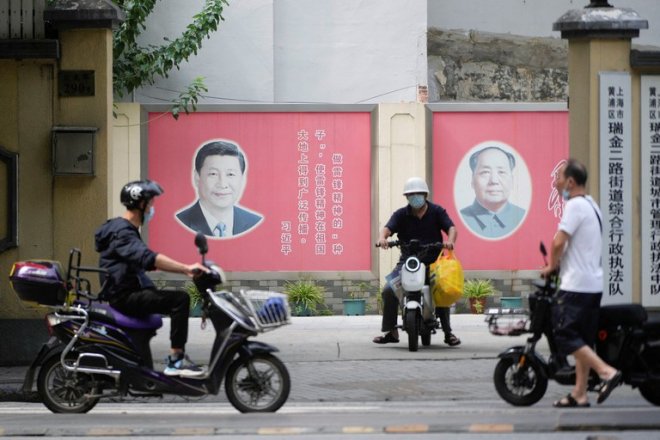 People pass portraits of Chinese President Xi Jinping and late Chinese chairman Mao Zedong In Shanghai, China, Aug. 31, 2022. Credit: Aly Song/Reuters
People pass portraits of Chinese President Xi Jinping and late Chinese chairman Mao Zedong In Shanghai, China, Aug. 31, 2022. Credit: Aly Song/Reuters
Before getting a makeover from Xi, the term "struggle" was closely associated with the public denunciations and kangaroo courts of the Cultural Revolution that raged from 1966-76 under late supreme leader Mao Zedong.
Xi has drawn heavily on communist icons and legends in recent years, kicking off his third term in office with visits to several of the Communist Party"s "holy sites," and sparking a slew of copycat visits from lower-ranking officials.
The insistence on "struggle" as a form of political practice comes amid growing concerns over a Mao Zedong-style personality cult around Xi, as institutions and political figures compete to show the utmost loyalty and study up on his personal brand of political ideology.
When he came to power in 2012, Xi relied on his trademark "tigers and flies" anti-corruption campaigns to bring down his political rivals and generate "struggle" within party ranks.
‘Irregular income’
‘According to estimates from the U.S. National Bureau of Economic Research, corruption is so widespread throughout party and government ranks as to provide rich pickings for anyone looking for a good reason to bring down a powerful official.
Recent research published by the bureau suggests that at least 65% of Chinese officials at bureau level and above are involved in some form of corrupt dealings.
Researchers looked at China"s housing provident fund records between 2006 and 2013 and compared the official income reported by government employees with the income needed to buy the property they owned, and came to three major conclusions.
The results showed that the "irregular income" of Chinese Communist Party officials accounted for an average of 83% of their overall income, although official salaries are generally fairly competitive, and officials aren"t underpaid.
This proportion rose with an official"s rank, with department directors sometimes raking in more than four times their official salary from other sources.
However Xi"s anti-corruption purges appear to have had some impact, the report said, citing falling unofficial income since he took power.
According to state media reports, Xi"s anti-corruption campaign has netted some 4.7 million low-ranking “flies” and thousands of high-ranking “tigers" since 2012.
Translated by Luisetta Mudie.
